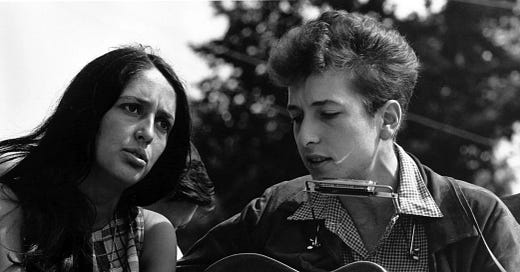When the Vietnam War started heating up in the 1960s, young men were drafted and sent into combat. As you can imagine, many did not care for the idea of being shot at. Protests initially were charmingly wistful; in fact, they were actually called “protest songs”
“Burning your draft card” was a common activity at those protests, although that could land y…




